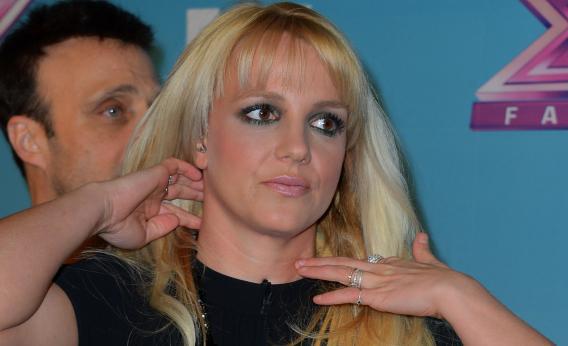Last week, Slate Lexicon Valley podcaster (and NPR On the Media host) Bob Garfield lamented a frightening tic invading American speech. It appears “almost exclusively among women, and young women at that.” As these women form sentences, Garfield explains, “something happens to their voice, as if they have a catch in their throat.” He summons his 11-year-old daughter Ida to the microphone to mimic the speech pattern. “Ida,” he instructs her, “be obnoxious.”
The affect of which Garfield speaks is known as “creaky voice” or “vocal fry,” a gravelly lowering of the voice that conjures the sounds of “a door creaking or a hinge that needs oiling.” Over the course of the 26-minute podcast, Garfield describes the speech pattern as “vulgar,” “repulsive,” “mindless,” “annoying,” and “really annoying.” “I want the oil to stop frying,” Garfield says. “I want someone to wave a magic wand over a significant portion of the American public”—you know, women—“and have the frying come to an end.”
For years, women have been criticized for raising their voices at the end of sentences. This “Valley Girl lift,” as Hofstra fine arts professor Laurie Fendrich maligns it, “reveals an unexplainable lack of confidence in one’s opinions and a radical uncertainty about one’s place in the world.” Raising our voices makes women sound like “an empty-headed clotheshorse for whom the mall represents the height of culture,” she writes.
So we’re wrong when we raise our voices, and we’re wrong when we lower them. (Lest you think Garfield’s fix to the vocal fry “problem” is that we all just revert back to Valleyspeak—that register also strikes him as “frightful,” and he repeatedly mocks both voices throughout the podcast.) Just as Valley Girls are perceived as overly feminine and submissive, Creaky Girls may be seen as overly masculine and derisive. Lexicon Valley co-host Mike Vuolo notes that a woman’s voice is, on average, an octave higher than a man’s. Lowering into a gravelly creak puts men and women on the same wavelength. “Vulgar!”
Of course, young women could work to flatten their speech patterns to conform to Garfield’s own NPRish affectation, which one commenter describes as “Richard Pryor making fun of WASPs.” So why do we instead insist on speaking in ways that older men find so objectionable? Vuolo valiantly meets Garfield’s annoyance with some research into how the vocal creak actually functions among young women. (“I don’t have any data,” Garfield counters. “I simply know I’m right.”) One study recorded a college-aged woman’s voice while speaking in an even tone, and then again when employing the creak. When both samples were played for students in Berkeley and Iowa, those peers viewed the affectation as “a prestigious characteristic of contemporary female speech,” characterizing the creaky woman as “professional,” “urban,” “looking for her career,” and most tellingly: “not yet a professional, but on her way there.”
“You mean there were positive associations among her demographic?” Garfield asks incredulously. “It’s so repulsive, and yet it’s deemed sophisticated by our next generation of leaders?”
That’s right, Bob. And a 2011 Science investigation into vocal fry confirms that the vocal creak is not a universally-reviled tic. Science cites a study conducted by speech scientist Nassima Abdelli-Beruh of Long Island University, who observed the creak in two-thirds of the college women she sampled. She also found that “young students tend to use it when they get together,” with the speech pattern functioning as a “social link between members of a group.” One of the most prominent vocal creakers of my generation, Britney Spears, actually digitally modifies her voice to creak more impressively when delivering lines like, “It’s Britney, bitch.”
Garfield may be satisfied to learn that Abdelli-Beruh “does not hear vocal fry on National Public Radio, which targets an older audience.” But if an older white guy like Garfield did creak, would Garfield be annoyed? Linguist Mark Liberman has documented the rise of the Valley Girl lift, which he describes as American “uptalk,” among even the manliest of men. He’s noticed it in the speech of a python wrangler, a NASA official, and George W. Bush. (The “uptalk” is also a common feature in much non-American English speech, where it does not hold the same sissy connotations.) The sounds of the Valley have traveled so far, they’ve entered into the vocal patterns of Pat Robertson, who once said: “I really believe I’m hearing from the Lord it’s going to be, like, a blowout election in 2004.” In some discourse communities, Liberman documents, “final rises” have actually been used by men and women to “assert dominance and control” over the conversation “by holding the floor, by exerting pressure on the hearer to respond, or by reminding the hearer(s) of common ground.” Only when young women employ it is the speech pattern so vilified.
I suspect that the spread of “creaky voice” makes Garfield so mad because it represents the downfall of his own mode of communication, which is swiftly being replaced by the patterns and preferences of 11-year-old girls like Ida and her peers. As women gain status and power in the professional world, young women may not be forced to carefully modify totally benign aspects of their behavior in order to be heard. Our speech may not yet be considered professional, but it’s on its way there. Once, an anxious parent wrote into Liberman’s blog to complain that a Ph.D. daughter populates her speech with uptalks, as do her doctor/lawyer peers. Could Liberman point to any research proving the “negative effects” of this feminine affectation? “You’re certainly entitled to your crotchets and irks, just as your adult daughter is entitled to her prosodic preferences,” Liberman responded. “But in order for the two of you to get along, something’s going to have to give. And realistically, it’s you.”
